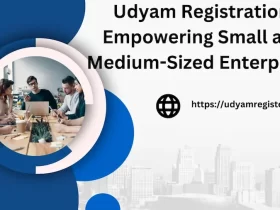Housing credit has become more affordable thanks to a range of factors, such as the declining repo rate. In the past two years, the RBI has lowered this rate significantly, ensuring minimal liabilities to home loan borrowers. At present, the repo rate stands at 4%, which has also led to low home loan interest rates.
Nevertheless, borrowers should consider a few other factors that influence housing loan rates. While the repo rate is beyond the control of the average citizen, other factors, such as credit rating, eligibility and documentation, can allow an individual to acquire the most favourable terms on their loans.
Failure to comply with these norms may push one’s home loan interest rates higher.
Factors that can lead to higher Home Loan Interest Rates
Before an individual applies for a home loan, it is necessary to focus on the following factors.
1. A credit score below 750
Regardless of the kind of credit you choose, your CIBIL rating will influence the rates on offer. Thus, individuals who lack sufficient credit scores can face loan rejection. Alternatively, HFCs may choose to grant the loan but charge a significantly higher premium against it.
If your scores are below 750 currently, try to improve the same before opting for a long-term credit option, such as a home loan. Otherwise, you may have to service higher EMIs and a considerable interest amount during its tenor. One of the simplest ways to avoid credit score-related interest rate hikes is to pay existing dues on time. Maintaining a healthy balance between secured and unsecured loans in one’s portfolio is another simple way to maintain decent ratings.
2. Limited disposable income
Disposable income refers to the monthly amount that an individual has left over after paying for all necessities, including food, rent, bills and debts. A housing loan applicant with low or poor disposable income may acquire credit at higher rates. This increased interest charge compensates the lender for its higher risk.
One must keep his/her fixed obligation to income ratio (FOIR) under 40% before applying for a home loan. This means that 40% of the individual’s monthly earnings go toward servicing various obligations. If your FOIR is higher than this threshold, you may need to bear increased home loan interest rates.
3. Choosing too short a tenor for repayment
Home loans come with significant repayment flexibility. Some lenders offer up to 20 years to pay off such a debt. However, to reduce the interest burden, borrowers may often choose a shorter tenor. However, limiting this repayment term too much may cause your lender to perceive you as a high-risk borrower.
Shorter tenor leads to higher EMIs, and borrowers need to consider whether they are comfortable paying the significant instalments. A home loan EMI calculator is the ideal tool to make such decisions, helping one to strike the most suitable tenor and EMI balance.
4. Failing to meet basic eligibility or documentation policies
Eligibility criteria for a home loan vary from lender to lender. Before applying, borrowers should check and verify these parameters. Failure to meet one or more of these can lead to outright loan rejections. Alternatively, it can also cause a surge in the home loan interest rates if your credit application is sanctioned.
Apart from eligibility, an applicant must also arrange all of the documents necessary to avail such a loan. Inquiring about the same with your lending institution beforehand can simplify matters significantly.
In some instances, opting for a joint home loan can help improve overall eligibility. Housing finance companies tend to consider the income, credit rating and other important aspects of both borrowers together in such cases.
Apart from acquiring favourable terms, eligible applicants also receive pre-approved offers. Available across a vast spectrum of financial products, such as home loans, loan against property and more, these offers make borrowing simpler and quicker. Check your pre-approved offer by divulging a few basic details.
5. Opting for minimal down payment
Home loans involve paying a portion of the property’s cost from your pocket, and financing the remaining using this credit. If a borrower chooses to fund the majority of his/her chosen property’s value using the loan principal, it increases risk for lenders. Therefore, such a decision can lead to significant increase in home loan interest rates as well.
Keep in mind that besides these factors, the Government of India provides hefty home loan interest tax benefit to borrowers. In any given fiscal, a borrower can claim a reprieve of up to Rs.2 lakh on his/her taxable income due to interest borne on housing credit. Thus, apart from lowering the rates, such provisions also allow for additional savings.











Leave a Reply